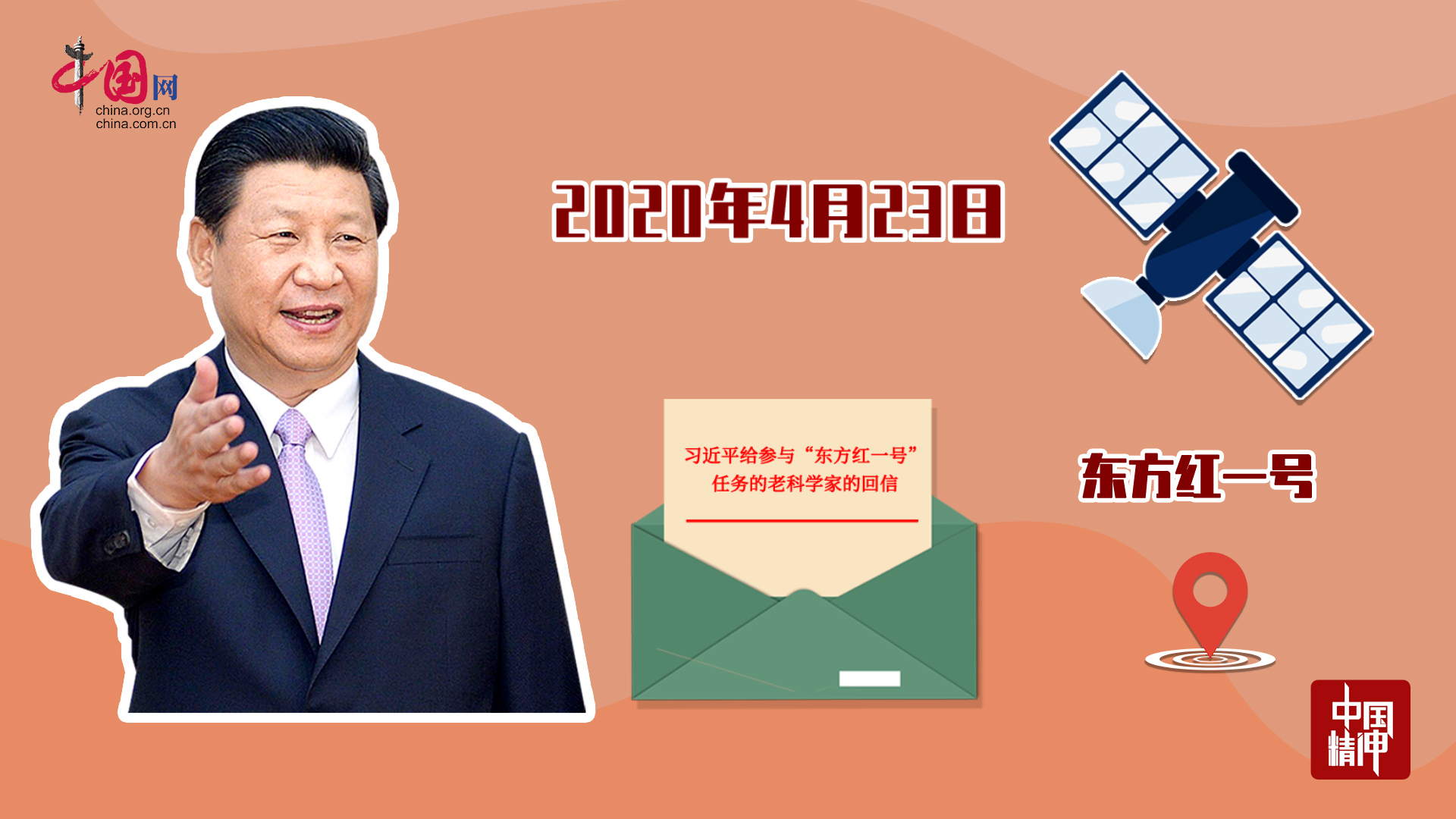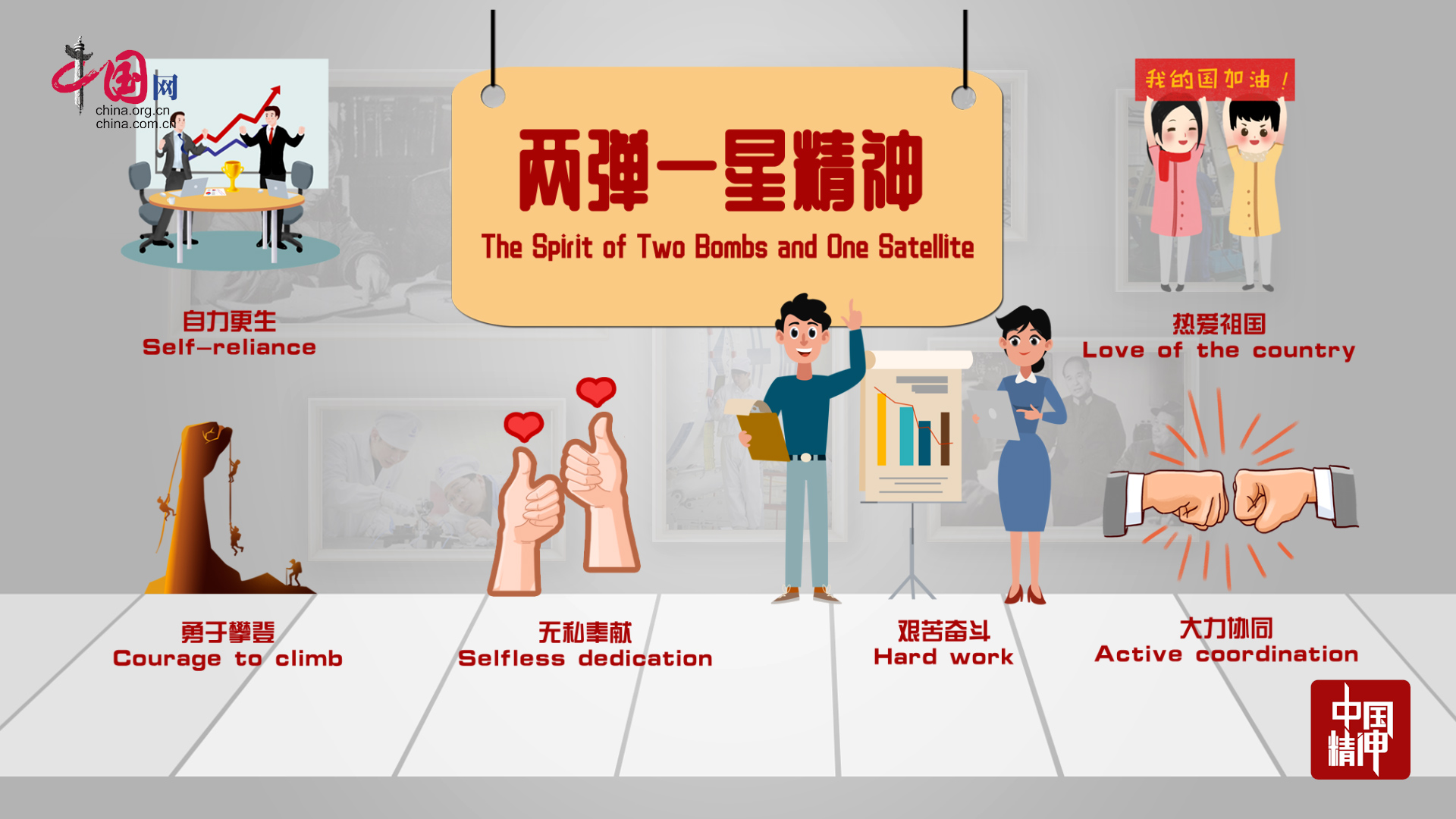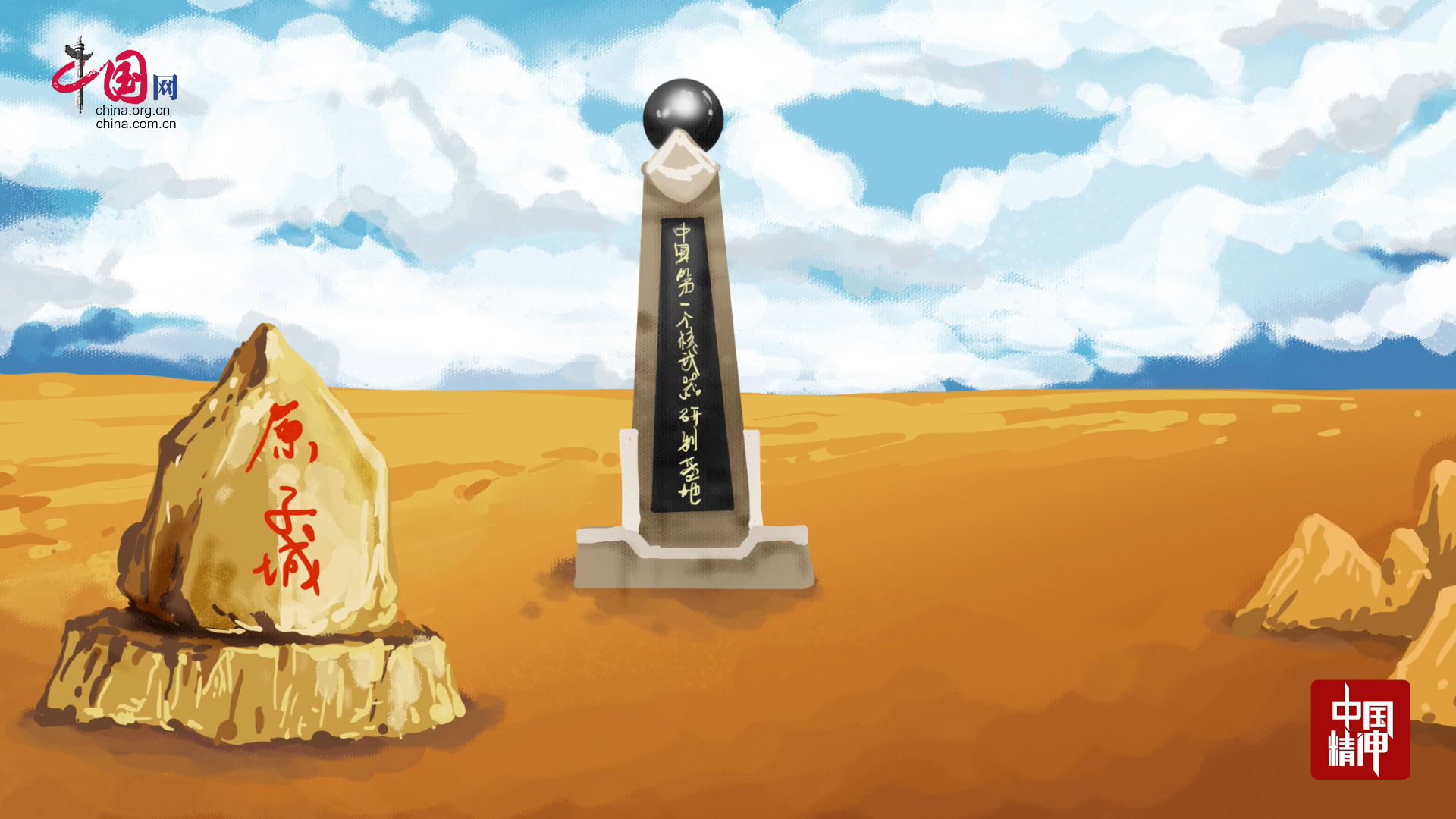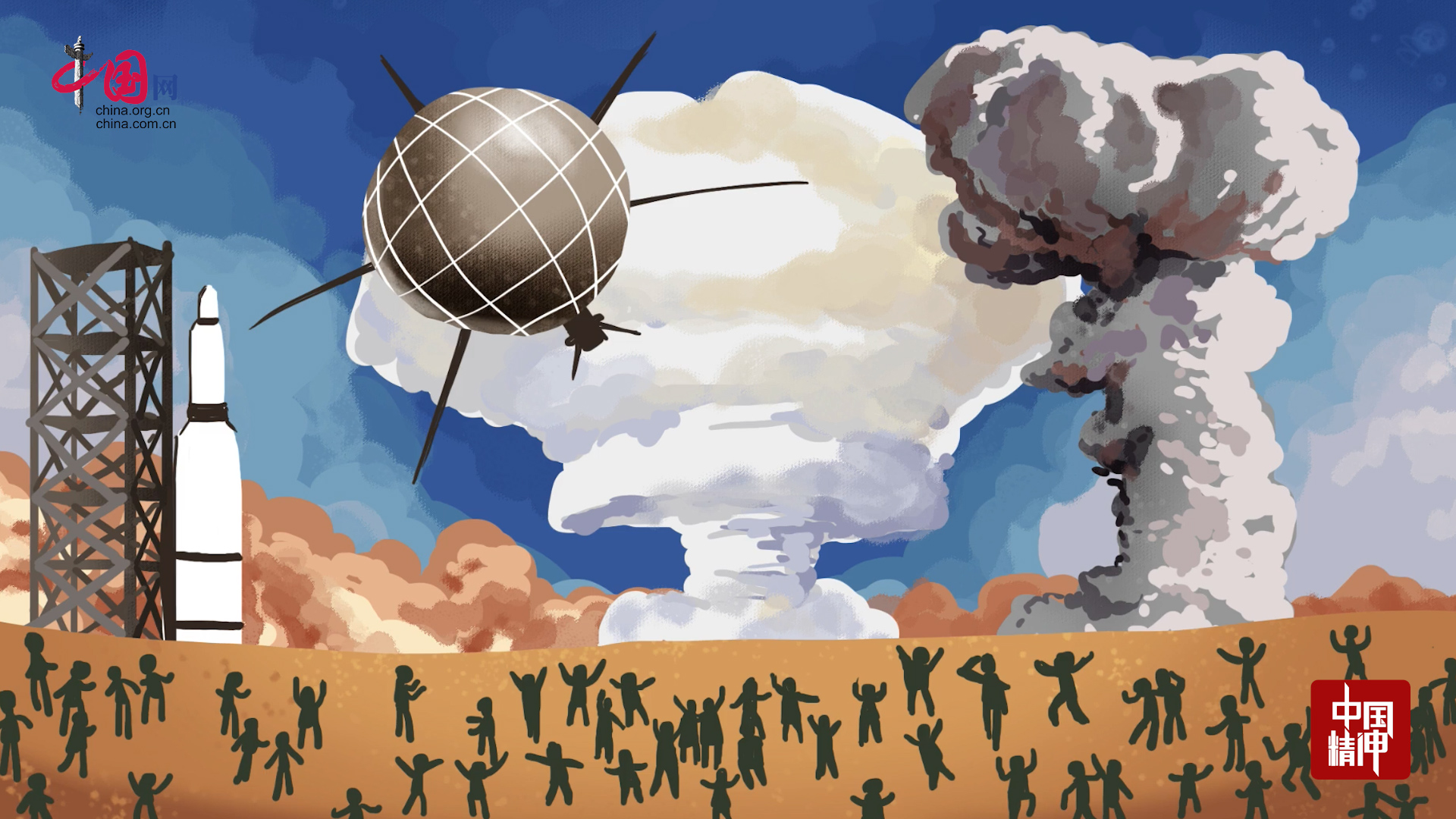2020年4月23日,习近平总书记给参与“东方红一号”任务的老科学家回信,向他们致以诚挚的问候,信中提到,新时代的航天工作者要以老一代航天人为榜样,大力弘扬“两弹一星”精神,敢于战胜一切艰难险阻,勇于攀登航天科技高峰,让中国人探索太空的脚步迈得更稳更远,早日实现建设航天强国的伟大梦想。
On April 23, 2020, General Secretary Xi Jinping wrote back to the elder scientists who participated in the Dongfanghong-1 mission, and extended sincere greetings to them. In the letter, Xi said in the new era, workers in the aerospace sector should follow the example set by the elder scientists, and uphold the "spirit oftwo bombs and one satellite". He encouraged space industry professionals to overcome difficulties and hardships to achieve new heights in space science and technology, and expected them to strive to strengthen and expand our space exploration and make our country a great space power as soon as possible.

1964年10月,罗布泊一声巨响,伴随着一团蘑菇云升起,我国第一颗原子弹爆炸成功;1967年6月,我国第一颗氢弹空爆试验成功,成为世界上第四个掌握氢弹技术的国家;1970年4月,我国第一颗人造卫星发射成功,成为世界第五个独立发射卫星的国家。这是广大研制工作者在攀登现代科技高峰的征途中创造的奇迹,把热爱祖国、无私奉献、自力更生、艰苦奋斗、大力协同、勇于攀登的“两弹一星”精神永久地镌刻在中国大地上。
In October 1964, with a deafening sound and a mushroom cloud in Lop Nur, China exploded its first atomic bomb. In June 1967, China successfully tested its first hydrogen bomb, becoming the fourth country in the world to master the technology of hydrogen bomb. In April 1970, China's first man-made satellite was successfully launched, which listed China as the fifth country in the world to develop and launch a man-made satellite on its own. These are miracles created by the vast number of researchers in exploring modern science and technology. The spirit of "two bombs and one satellite" featuring love of the country, selfless dedication, self-reliance, hard work, active coordination and courage to climb has been permanently engraved on the land of China.

研制“两弹一星”是在我国物质技术基础十分薄弱的条件下进行的,他们以帐篷为家,以戈壁黄沙为伴,自强自立,最终建成了中国的“原子城”。钱学森勇毅担当“外国人能干的,中国人都能干”;孙家栋说“搞‘两弹一星’,必须自力更生,我们中国人是压不倒的”;“氢弹之父”于敏28载隐姓埋名,填补中国原子核理论的空白。
The "two bombs and one satellite" project was carried out when China's material and technological foundation was very weak. Living in the tents on the Gobi, the self-reliant scientists eventually built China's "Atomic City". Qian Xuesen was courageous and responsible. He said "what foreigners can do, we Chinese can also do it"; Sun Jiadong said "to engage in 'two bombs and one satellite' project, one must be self-reliant. We Chinese cannot be overwhelmed"; Yu Min, known as "the father of China's hydrogen bomb", remained anonymous for 28 years to fill the gap in China's nuclear theory.

我国“两弹一星”的事业是集体的事业,它取得的每一次成功,都凝聚着千万人的奋斗和创造,辉煌和光荣属于每一个在这条战线上大力协同、勇于登攀的无名英雄,属于全体中国人民,属于自强不息的中华民族!
China's "two bombs and one satellite" project is a collective cause. Every success it has achieved is the result of the efforts and creativity of thousands of people. The glory belongs to every unsung hero who works with great effort on this front, to all Chinese people, and to the Chinese nation that never pauses in the pursuit of progress!
